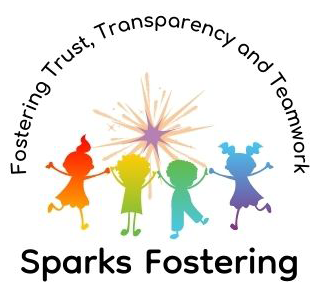Resources for dealing with behavioural issues in foster children
Foster carers and fostering staff have access to a range of resources to support children who are struggling with their behaviour, such as:
Behaviour support training
All foster carers receive training in how to support children who are struggling with their behaviour. It should be noted that appropriate challenge and pushing boundaries are normal parts of growing up; however, some children in care present with more challenging behaviour.
The behaviour support training helps carers to understand some of the reasons why children in foster care may struggle with their behaviour and how foster carers should respond to the behavioural challenges. The Sparks Fostering behaviour management policy can be accessed here.
Therapeutic support
Behavioural issues can be linked to trauma, low self-esteem, or other emotional or psychological difficulties. The supervising (fostering) social worker or local authority (children’s) social worker may arrange therapeutic support for the child and/or the foster carers.
Medical support
Some children may have medical needs which are linked to behavioural challenges so the child may need medicinal treatment via the child’s GP.
Contact arrangements
Safe contact with people who are important to the child is likely to result in improved emotional health for the child, and subsequently, the child may be better able to manage their feelings and behaviour.
Educational support
Sometimes children in care struggle with educational attainment, which can lead to low self-esteem and low mood. Supporting children with their education may lead to improved behaviour.
Peer support
Improved peer relationships may help the child to feel less lonely and may improve the child’s mood and behaviour.
Respite and backup carer support
Foster carers and children may benefit from a short break away from each other; ideally the child would stay with carers who they already know and have a good relationship with. Some reparative relationship work can be carried out in the time that they are separated.
Additional supervision
Foster carers receive additional support and visits from their supervising social worker and from the child’s (local authority) social worker when children are unsettled.
Support workers
Some providers, like Sparks Fostering, allocate support workers to children, whose role it is to provide individualised one-to-one direct support to meet the needs of the child.






